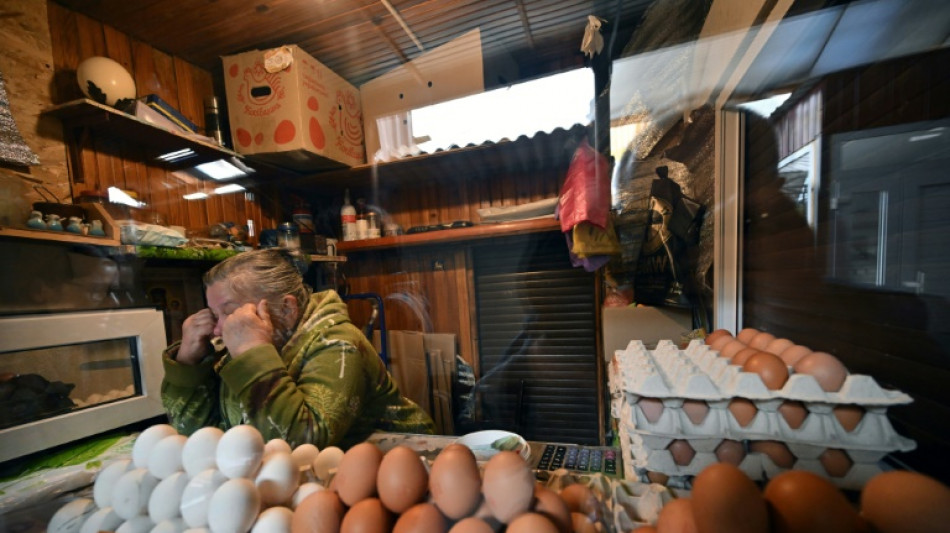
-
 Spurs will show no fear against Man Utd in Europa League final: Van de Ven
Spurs will show no fear against Man Utd in Europa League final: Van de Ven
-
Renowned Holocaust survivor Margot Friedlaender dies at 103
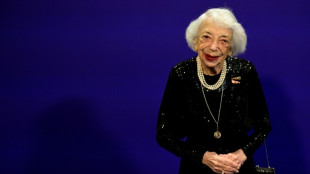
-
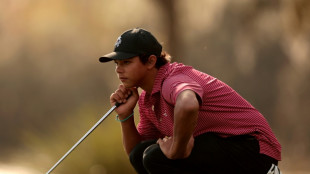 Woods, 16-year-old Charlie, misses out in US Open qualifier
Woods, 16-year-old Charlie, misses out in US Open qualifier
-
Pakistan says India has put neighbours 'closer to major conflict'
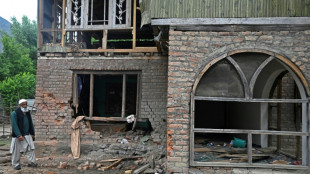
-
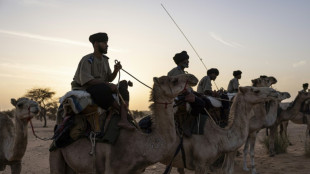 On patrol for jihadists with Mauritania's camel cavalry
On patrol for jihadists with Mauritania's camel cavalry
-
France, Poland sign treaty with mutual defence pledge
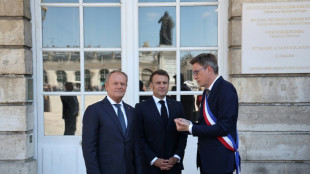
-
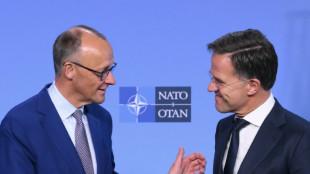 NATO chief seeks defence spending at 5% of GDP by 2032: Dutch PM
NATO chief seeks defence spending at 5% of GDP by 2032: Dutch PM
-
La Rochelle head coach O'Gara suspended for five weeks

-
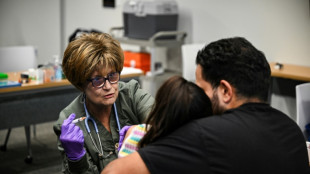 Measles roars back in the US, topping 1,000 cases
Measles roars back in the US, topping 1,000 cases
-
Fulham boss Silva refuses to rule out Saudi switch
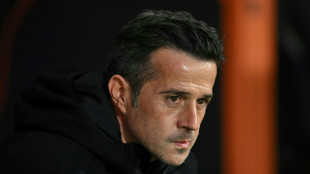
-
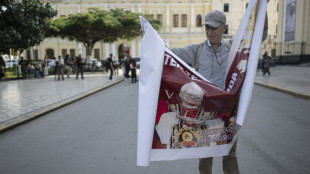 From Chicago to Chiclayo: Peruvian town hails adoptive son and pope
From Chicago to Chiclayo: Peruvian town hails adoptive son and pope
-
Ivorian women fight FGM with reconstructive surgery
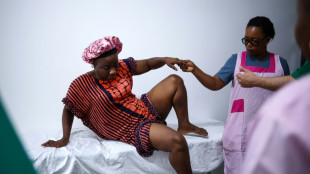
-
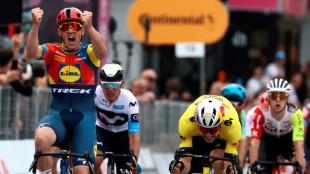 Pedersen wins opening stage of Giro d'Italia in Albania
Pedersen wins opening stage of Giro d'Italia in Albania
-
Stocks mixed despite hopes for US-China tariff talks
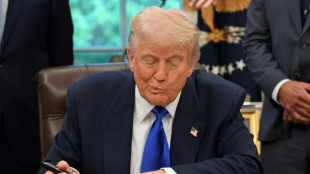
-
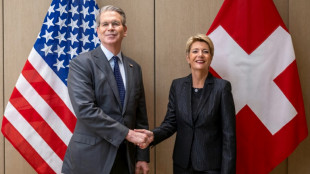 US, Swiss agree to speed up tariff talks
US, Swiss agree to speed up tariff talks
-
Trump floats cutting China tariffs to 80% ahead of trade talks

-
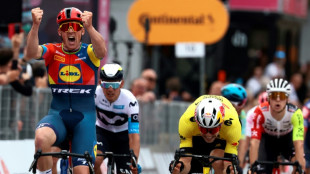 Pedersen wins opening stage of Giro d'Italia
Pedersen wins opening stage of Giro d'Italia
-
Marc Marquez sets Le Mans lap record in French MotoGP practice
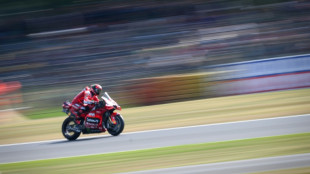
-
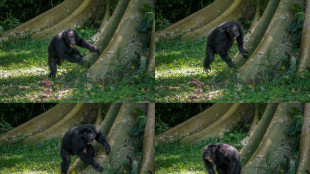 Jungle music: Chimp drumming reveals building blocks of human rhythm
Jungle music: Chimp drumming reveals building blocks of human rhythm
-
Guardiola tells Man City stars to question their hunger after troubled season
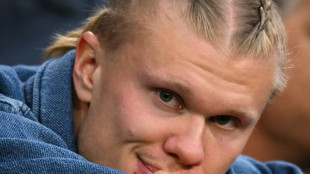
-
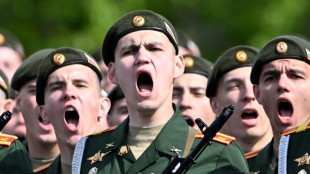 Putin, Xi, Steven Seagal and missiles: Russia's Red Square parade
Putin, Xi, Steven Seagal and missiles: Russia's Red Square parade
-
Trump suggests lower 80% China tariff ahead of Geneva trade talks

-
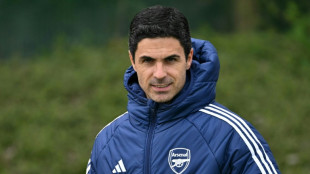 Arteta wants Arsenal to use Liverpool guard of honour as title fuel
Arteta wants Arsenal to use Liverpool guard of honour as title fuel
-
Stocks lifted by hopes for US-China talks
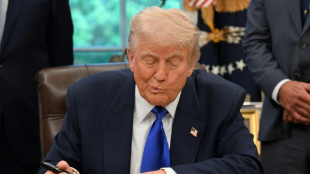
-
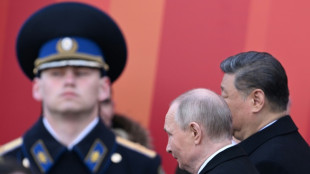 Putin hails troops in Ukraine as allies attend WWII parade
Putin hails troops in Ukraine as allies attend WWII parade
-
UK, northern European nations support Ukraine 30-day ceasefire: Norway PM
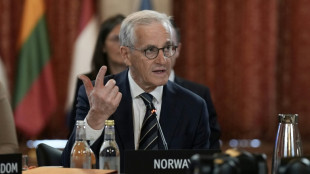
-
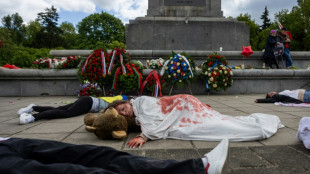 Activists hold 'die-in' protest at Soviet monument in Warsaw
Activists hold 'die-in' protest at Soviet monument in Warsaw
-
Trump suggests lower China tariff, says 80% 'seems right!'

-
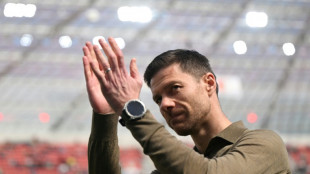 Alonso confirms exit from Leverkusen at end of season
Alonso confirms exit from Leverkusen at end of season
-
Maresca ready for Chelsea's 'huge' Newcastle test

-
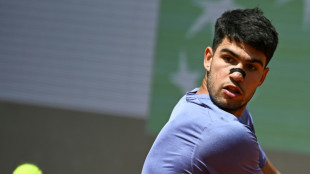 Alcaraz, Sabalenka cruise to wins at the Italian Open
Alcaraz, Sabalenka cruise to wins at the Italian Open
-
Swiss seize window of opportunity on Trump tariffs
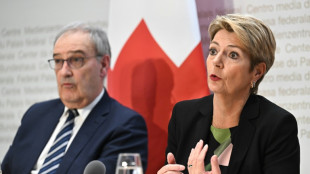
-
 Amorim admits Man Utd 'problems' despite reaching Europa League final
Amorim admits Man Utd 'problems' despite reaching Europa League final
-
New Pope Leo XIV has mixed record on abuse: campaigners
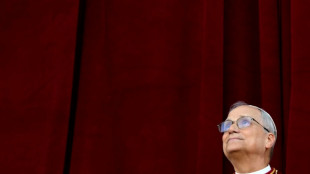
-
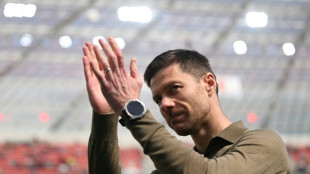 Xabi Alonso confirms exit from Bayer Leverkusen at season's end
Xabi Alonso confirms exit from Bayer Leverkusen at season's end
-
From blockades to ballots: Serbian students confront government
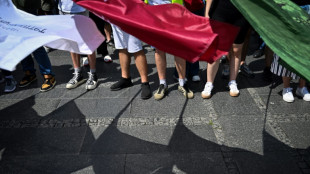
-
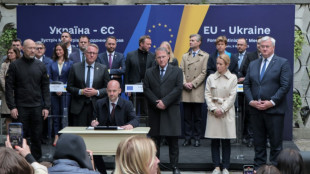 Kyiv's EU allies endorse tribunal to try Russian leaders
Kyiv's EU allies endorse tribunal to try Russian leaders
-
Two men found guilty of chopping down iconic UK tree
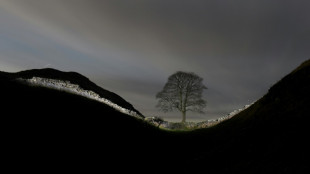
-
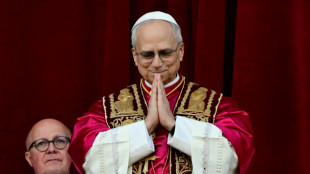 Tennis, Twitter and marinated fish: Things to know about Pope Leo
Tennis, Twitter and marinated fish: Things to know about Pope Leo
-
Liverpool's Salah voted Football Writers' Player of the Year

-
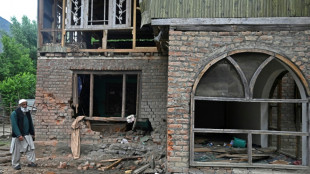 Pakistan says India has brought neighbours 'closer to major conflict'
Pakistan says India has brought neighbours 'closer to major conflict'
-
Stocks lifted by hopes for US-China talks after UK deal

-
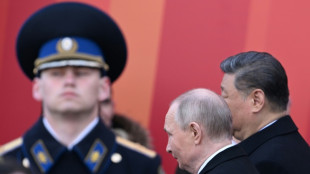 Putin hails troops fighting in Ukraine as foreign leaders attend parade
Putin hails troops fighting in Ukraine as foreign leaders attend parade
-
Howe urges Newcastle to fulfil Champions League expectation

-
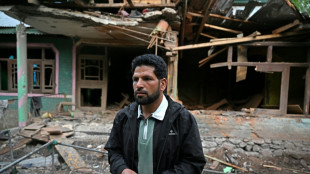 Weary border residents in Indian Kashmir struggle to survive
Weary border residents in Indian Kashmir struggle to survive
-
Leo XIV says Church must fight 'lack of faith' in first mass as pope
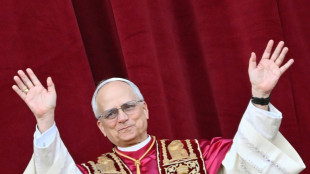
-
 Liverpool boss Slot fears replacing Alexander-Arnold will be a tough task
Liverpool boss Slot fears replacing Alexander-Arnold will be a tough task
-
British Airways owner unveils big Boeing, Airbus order

-
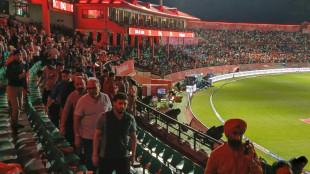 IPL suspended for one week over India-Pakistan conflict
IPL suspended for one week over India-Pakistan conflict
-
Slot says all at Liverpool sad to see Alexander-Arnold go


At Bucha market, life goes on 'so we don't go mad'
Most stalls still have their shutters down but the reopening of the market in Bucha marks a return to a semblance of normality for this Ukrainian town synonymous with war crimes.
Barely visible behind the piles of eggs on her stall, Nataliya Morgun, 69, remembers how cold it was in March when the Russian troops entered Bucha, just outside Kyiv.
She also recalls the silence when the guns stopped firing because most of the residents had fled.
"Thank God, it's slowly coming back to normal," she told AFP, tears running down her wrinkled cheeks.
It is the first time she had left herself cry since the war began, she says.
"It's shameful for me to say that I was born in Russia."
Bucha became synonymous with allegations of war crimes by Russian troops since dozens of bodies in civilian clothing were found lying in the streets, some with their hands tied, after Russian forces left on March 31.
More and more corpses have been discovered there and in the surrounding towns and villages since. The Kremlin denies Russian involvement in atrocities.
Dressed in red and pink, the colours of her butcher's stall, Valeriya Bilyk, 21, says she "doesn't want to think about it", preferring to busy herself at the little covered market where she works with her husband and which reopened last week.
"It's getting better and better every day... Shops are opening little by little. People with small kids and dogs are coming back," she says.
"If you don't look at the ruins, it feels like we’ve practically recovered from all of this."
Most of the rubble and carcasses of burnt-out cars have been removed but it's hard to ignore the gutted buildings outside the market, the bullet holes and the damage suggesting some of the shops have been looted.
Most of the shopkeepers haven't come back and most of the few customers wandering between the stalls are elderly.
"There are more cats than people," remarks one passerby.
- Business, but not as usual -
Despite everything, 63-year-old Nadia Grebenyk is doing brisk business at her stall selling seeds for growing cucumbers, watermelon and flowers.
"It's spring. Everybody wants to plant a garden of victory," she says, stuffing a handful of small banknotes into her pocket.
In order to earn a bit of money, Sergiy, 42, has decided to open a stall at the market with his wife, Maryna, who teaches English at a local school.
Formerly working as an engineer at the nearby airport, he has been jobless since the war began and is hoping to bring in a bit of extra cash to supplement Maryna's income.
New to the market business, the pair have come up with an original idea -- birthday decorations.
"In any hard time, children need to laugh," she explains while laying out pointed paper hats and coloured banners on their little stall.
But behind all the cheerful party paraphernalia, their conversations take a darker turn, with endless discussions about what happened during the Russian occupation.
Sergiy talks about his sister's godfather who was tortured, showing pictures of the body on his mobile phone.
And Maryna speaks about the death of the mum of one of her students, before changing the subject.
"We need to switch to a daily routine, try to work, to forget."
- 'We will pay them back' -
Dmytro Yefremov, who has come to buy a water filter from a small hardware shop, says he has no intention of forgetting "what was done here by the katsaps" -- using a pejorative term for the Russians.
"Dozens of generations will remember it until their dying day. And we will pay them back," he vows.
But he also knows that "life should not stop".
Olena Khokhlova, a 34-year-old mum with a small bag of vegetables in her hand, is also getting on with things. Her second child is well on its way.
She lives in Yablunska Street (Apple Tree Street), the now-infamous road where so many bodies were found, admitting she saw "horrors" before fleeing on March 10.
"It's shocking at first and then you realise that it's our reality and that you need to change your life and continue living," she told AFP.
"Because if you don't, you'll go mad."
When her daughter is born in August, she will be named "Stefania" after the song by Kalush Orchestra that won Ukraine this year's Eurovision Song Contest.
M.Fischer--AMWN